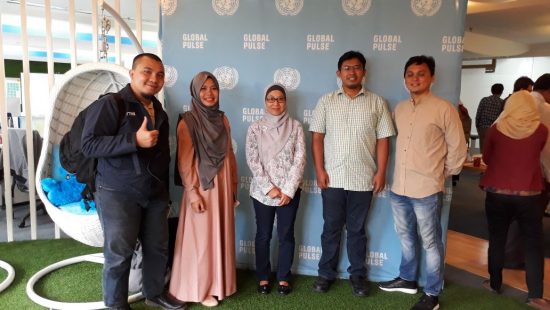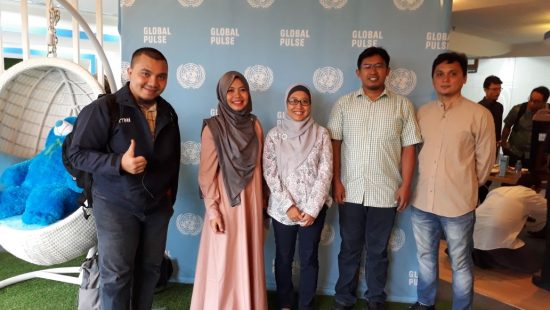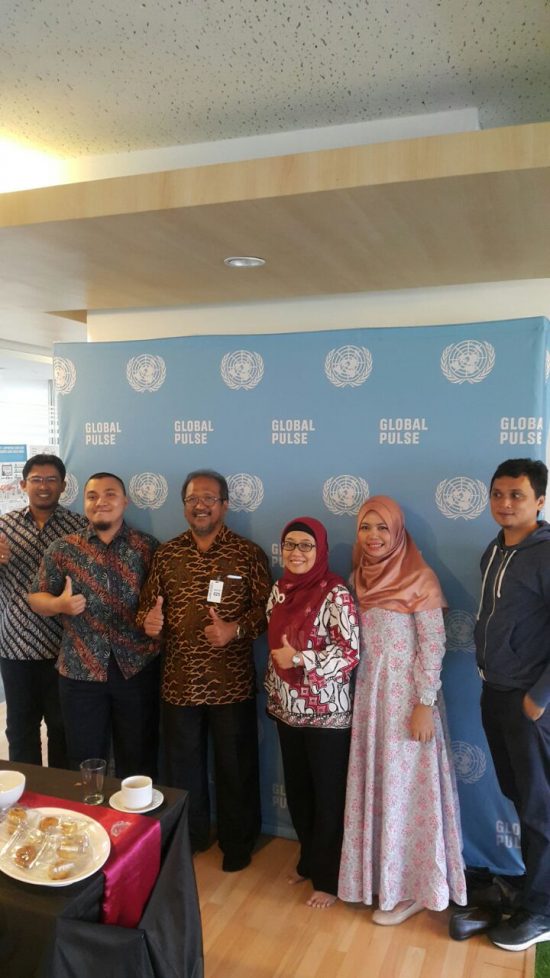Research Dive Experience Will Be Applied In PWK ITS – January 2018
News
The data is currently open and can be managed easily through Big Data. The trend is that many organizations are taking, managing and analyzing data from any source, such as Pulse Lab Jakarta (PLJ). One of the annual events by PLJ is Research Dive.
Research Dive is a short-term research activity. At Researceh Dive, there are two PWK ITS lecturers who have the opportunity to take part in four days of research starting from 19-22 November 2017.
He is Cahyono Susetyo ST MSc PhD and Siti Nurlaela ST M Com who succeeded in producing output in the form of Extended Abstract which analyzes issues related to development and humanity in Indonesia. The research of these researchers will be developed into papers and journals for publication in international journals Cahyono Susetyo ST MSc PhD, Head of the PWK Computational Laboratory told this research, each group of researchers was accompanied by staff from PLJ who acted as facilitators of data providers. “So, when in the middle of our research there is a lack of data, the companion team will always be ready to provide the required data quickly,” Cahyono said.
His condition, in searching for the current data is still manually. This is very different from PLJ staff who have been able to process data directly in the browser. “For such an approach, it still needs to be learned again at PWK ITS,” said the ArcGis expert. Given the available data is easily accessible, the researchers and practitioners have looked at the database system. Cahyono revealed that there were many lessons learned after attending the event. According to him, the competence possessed by PLJ staff in processing the data is quite good, so it needs to be emulated. Interestingly, they know how to find data on the internet. “For PWK itself, in looking for data, it still needs to get Bakesbang to get permission from the related agencies.
Sometimes the process is very troublesome, “he explained. Usually, during the survey also need an interview to complete the questionnaire. With the presence of social media the approach taken can be easily. Respondents can be asked to map spatial problems by writing a tweet with the hashtag problem on twitter. “The results of tweets from them were collected first and then matched with geolocation, so we know that there is a problem at that point,” he concluded.
In the future Cahyono hopes that there will be a continuation of the Big Data guest lecture from PLJ. He wants direct practice in taking data, so students can get used to it. “Direct hands on like that. So, so students can feel how it feels to interact directly with big data on the internet, “he said firmly.
By : Belia Ega Avila



Latest News
-
One on One Consultation Day
Interested in the URP ITS-Curtin University, Australia Double Degree program? Don’t miss the opportunity to consult directly with Patricia
-
Guest Lecture Prof. Agus Zainal
The ITS PWK Department will hold a guest lecture on the topic “Implementation of Disaster Management in Indonesia” which
-
Guest Lecturer Prof. Azizan – USM Malaysia (May 03, 2023)
Post Views: 564





